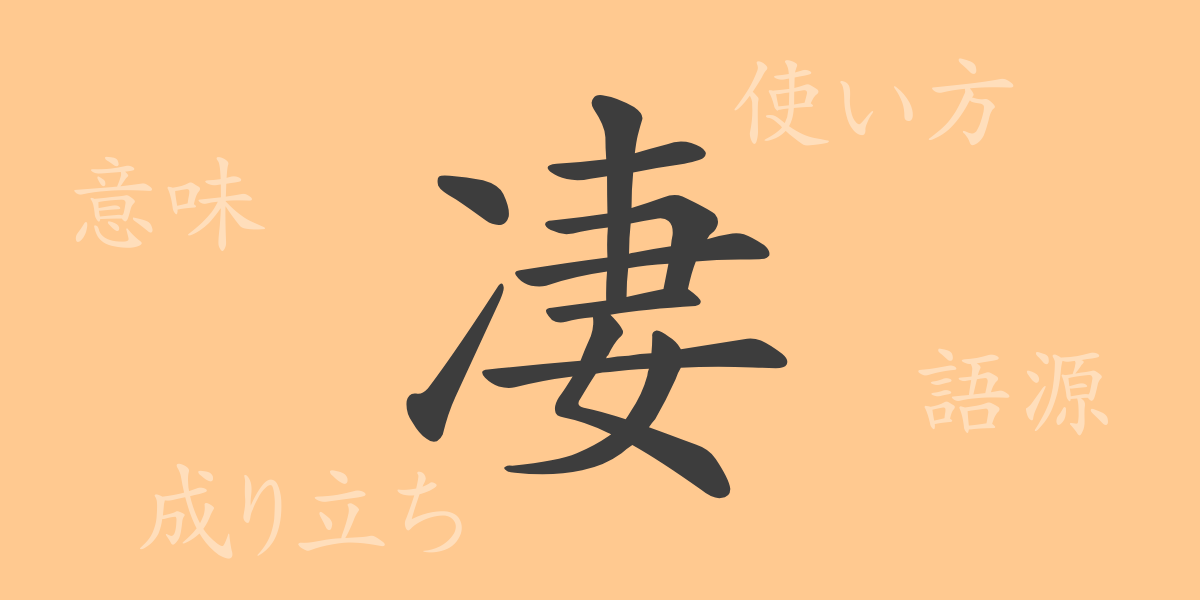The beauty of the Japanese language lies in its complexity. Each kanji character carries deep meanings, enriched by a rich history. ‘凄’ (すごい) is no exception. Commonly used in daily conversation, this character becomes indispensable when expressing intense emotions. This article delves into the origins, meanings, usages, readings, stroke count, radicals of ‘凄’, and explores related phrases and proverbs, unraveling the vast world encapsulated in this single character.
Origins of 凄
The kanji ‘凄’ originated from ancient Chinese pictographs, initially depicting the fierce blowing of the wind. Evolved from the depiction of vigorous wind movements, ‘凄’ began to be used to express not only natural phenomena but also to emphasize feelings or situations dramatically.
Meanings and Usage of 凄
In modern Japanese, ‘凄’ is frequently used to mean ‘extremely,’ applying to expressions of awe, surprise, or fear. For instance, it is used in phrases like ‘凄い速さで走る’ (run at an incredible speed) and ‘凄まじい勢いで仕事をこなす’ (work with tremendous vigor), indicating that something is exceptionally outstanding.
Readings, Stroke Count, and Radical of 凄
‘凄’ in Japanese has several readings and is used flexibly depending on the context:
- Readings: On’yomi ‘セイ’, Kun’yomi ‘すごい’, ‘すさまじい’
- Stroke Count: The kanji ‘凄’ consists of 10 strokes.
- Radical: The radical is ‘冫’ (にすい), reflecting its historical connection to ice and cold, hinting at its intense nature.
Phrases, Idioms, and Proverbs Using 凄
The kanji ‘凄’ appears in numerous idioms and phrases, each reflecting its intense and powerful meaning:
- 凄絶 (せいぜつ): Extremely fierce or intense.
- 凄腕 (せいわん): Having exceptional skill.
- 凄惨 (せいさん): Horribly fierce or gruesome.
- 凄烈 (せいれつ): Tremendously fierce or intense.
- 凄風 (せいふう): Extremely strong wind.
These expressions showcase the character’s original intent, reflecting states or capabilities of great intensity.
Conclusion on 凄
The kanji ‘凄’ is a versatile character in the Japanese language, used to express strong emotions or dramatic situations effectively. Understanding its powerful connotations enhances one’s expressive capabilities in both daily interactions and more profound literary contexts. This exploration into ‘凄’ enriches our appreciation of the language’s depth and the cultural context it carries.

























